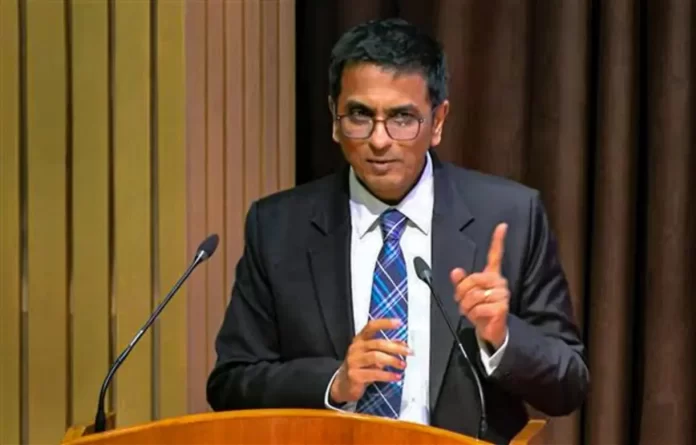Chief Justice of India (CJI) DY Chandrachud has said that the courts in India have come a long way from being more than just opaque physical spaces and have become democratic spaces of discourse.
Speaking during the at the J20 summit in Brazil on Tuesday, CJI Chandrachud stressed that Covid-19 pushed the frontiers of Indian court systems, which were compelled to change overnight.
The J20 Summit, overseen and coordinated by Brazil’s Federal Supreme Court (STF), brings together presidents from the Supreme and Constitutional Courts of G20 member countries, as well as representatives from the African Union and the European Union.
The event has seen discussions on critical topics including social justice, environmental sustainability and the integration of technology for improved judicial efficiency.
Speaking on topic ‘Digital Transformation and use of technology to enhance judicial efficiency’, the CJI highlighted that there was a need to look beyond the efficiency of a judge and at the holistic judicial process as well.
Efficiency did not only lie in the outcome, but in these processes, which must ensure a free and fair hearing, he said, while stressing on the need to ensure an element of accountability of judiciary towards the people, particularly when it came to transparency in the decision-making process.
The CJI said that as judges, they were neither princes nor sovereigns who were above the requirement of explanations. They were service providers and enablers of rights-affirming societies.
He said the decision itself and the road leading up to it must be transparent, understandable to everyone with or without a legal education, and be broad enough for everyone to walk alongside.
The CJI said that persons with physical impairments, pregnant women, and persons in their advanced years now have the choice to access courtrooms virtually.
As per CJI Chandrachud, over 750,000 cases have been heard over video conference. The proceedings of important constitutional cases in the Supreme Court were live-streamed on its YouTube channel, bringing constitutional deliberations to the homes and hearts of all citizens.
However, he also cautioned that the potential of technology lie in how it was converted to minimise the pre-existing inequalities since inequalities were not neatly stacked compartments, but were rather a complex web of interwoven realities.
Highlighting the misuse of Artificial Intelligence (AI) tools, he said techchnology was not a one-stop panacea for all social inequalities. Complicated issues such as AI-profiling and consequent stigmatisation of individuals in large language models, algorithmic bias, misinformation, exposure of sensitive information and opacity of black box models in AI must be tackled with sustained deliberative efforts and engagement about the dangers.
He also commended legal journalists in India for bringing accurate court news to light by allaying misinformation and misunderstanding of legal proceedings.
The CJI said that in India, it was quite common for judges to engage with a bar and play the devil’s advocate, in order to extract their best response. However, this was sometimes mistaken as the opinion of the bench and misleading clips of the proceedings are circulated on the internet. Fortunately, India had a robust network of legal journalists live-reporting the proceedings and helping in the dissemination of disinformation.


